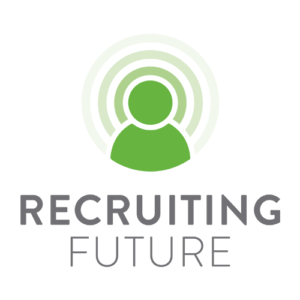With HR Technology being such a dominant topic in our industry I wanted to follow last week’s interview with George LaRocque, by speaking to a European based HR Tech expert for this week’s episode of the show.
Anna Ott was recently appointed Head of Startup Eco-system at UNLEASH and has 18 years experience in the HR Tech market. In our conversion, we focus a lot on how startup founders can better understand the HR world and how HR Practitioners can receive significant benefits by being bolder about technology.
In the interview we specifically discuss:
• Why there are now so many HR Tech Startups?
• The differences between the European and North American HR Tech Startup market
• Why Startups need to be better at seeing things from an HR point of view
• Does the way HR implement technology hold back innovation?
Anna also gives us her thoughts on the future and shares details of how both startups and HR Practitioners can get involved with UNLEASH
Subscribe to this podcast in iTunes
Transcript:
Matt Alder [00:00:00]:
Support for this podcast comes from Monster. Monster takes your open positions to hard to reach passive candidates on Facebook, Instagram, Twitter and hundreds of sites across the web, while their Swipe right mobile app presents active job seekers with the most relevant opportunities and can increase mobile applications fourfold. What’s more, Monster inspire customers to attract diverse talent and grow their employer brand. To find out how Monster can help you find, manage and champion the talent you deserve, visit monster.co.uk bettertalent that’s monster.co.uk bettertalENT monster in your corner.
Matt Alder [00:01:05]:
Hi everyone, this is Matt Alder. Welcome to episode 119 of the Recruiting Future podcast. With HR technology being such a dominant topic in our industry, I wanted to follow last week’s interview with George LaRocque by speaking to a European based HR tech expert for this week’s episode of the show. Anna Ott was recently appointed Head of Startup Ecosystem at unleash and has 18 years in the HR tech startup marketplace. In our conversation we focus a lot on how startup founders can better understand the HR world and how HR practitioners can receive significant benefits by being bolder about technology. Enjoy the interview. Hi Anna, welcome to the podcast.
Anna Ott [00:01:57]:
Hello.
Matt Alder [00:01:58]:
Pleasure to have you on the show. Could you just tell everyone a little bit about you and what you do?
Anna Ott [00:02:04]:
Yes, my name is Anna Ott. I work for a company called Unleash, formerly known HR Tech World. So we do have three shows throughout the year on Future of Work and hr and I’m the head of Startup Ecosystem. So HR tech startups are a big, big part of our shows. Previously I’ve been working for a company called Deutsche Telekom and was part of the incubator. So startups and HR is kind of what I did for the past 18 years in various roles. Some of that was also executive search and obviously I’m into HR tech startups mostly. So this is why I’m really excited about my new role.
Matt Alder [00:02:38]:
Fantastic. And sort of HR tech startups is very much what I wanted to sort of talk about on this show. I mean, it’s really clear that there’s a huge amount of investment going on and going into HR technology at the moment. Why do you think that is and is it more investment in the last few years than there was previously? What’s happening in the marketplace? What’s the situation?
Anna Ott [00:03:04]:
So why that is? I think that is foremost because it’s about time so it’s good. I see more startups coming up in hr. So I did obviously do some research on the amount of startups coming. I wouldn’t even link it to the amount of investment money that’s going in. There’s obviously also a factor that counts in towards the size of the market. But I would also, just from a quantity perspective, see there’s more startups coming. One factor probably that helped was the rise of new technology. So machine learning and stuff I wouldn’t even call AI, but probably even machine learning and data that helped startups build cool tools and services around HR and anything future of work. So I think this is a trend that is there because there’s obviously a need. So everyone is kind of touched by how work is perceived, how work has changed the digitization of everything. So there’s hardly anyone who cannot talk about those things. So it’s just I think a natural move that more founders go into that space and also obviously more investors look at it. I think it’s not as sexy yet as other trends in the industry. I said I’ve worked for an incubator who would look at other topics too, like 5G edge computing and stuff. So I think there are other markets still, fintech, proptech and geotech that are bigger and more sexy because the metrics for HR are really not that great. But I love the fact that a lot of founders that start HR tech startups do it from a passionate point of view. So most startups I interview, the founders will always tell me that they have been a user of any HR services themselves, either as an employee or a talent looking for a job. So this is why they’re passionate in making it better, because they saw a lack for a product, they saw that there’s technology helping and then they started a service or a company around that. So I like the motivation that you see in HR tech founders a lot.
Matt Alder [00:04:49]:
I think you make an interesting point there about HR tech sort of being behind other sort of aspects of startup technology like fintech. Do you think that is that something that’s likely to change? Do you think HR tech is going to get more sophisticated or do you just think that it’s reflective of a different type of market?
Anna Ott [00:05:08]:
I would hope it get more sophisticated. I think it already is very sophisticated. I think it’s just obviously both of the things that we’re looking at as B2B. Obviously there’s a lot of services around the talent itself. So from finding a job to developing your career and such. But if you look at the B2B chunk of those HR tech solutions. I think selling to HR people is still a very enduring work. Not to offend any HR person, but I think it’s not the easiest thing to sell. HR being not as digitized as other parts of companies and the market having been already nurtured by a lot of big software vendors like SAP and such, I think it’s really difficult for a startup to get a foot in the door there. So I think it will still grow, but it will not be as big as other trends that we see that just take an offline industry and by the use of technology disrupt it and digitize it. Because HR has already been a software market and from for new companies, really difficult probably to get into that. And on top, HR people are not the early adopters mostly. So when there is a new technology and it’s probably more experimental, they will be interested in it, but they won’t probably not trial it. Just they’re not used to doing pilots and small little experimental things. They will implement it fully or not. And I think that’s also not helping a startup to sell.
Matt Alder [00:06:31]:
No, that’s a really interesting point and I think it’s something we might come back to actually later in the. Later in the conversation. For now though, I think what will be interesting is there’s lots of, there’s always lots of, lots of talk and lots of things written and recorded about the HR tech startup market in North America. But I don’t see as much about what’s going on in Europe. What’s the difference between the two markets? And you know, what are you seeing happening in the European HR tech startup market?
Anna Ott [00:07:04]:
I think as in any other startup segment, you see the obvious that the US market there is, it is easier to get money and the check that you get from an investor is likely to be very much bigger than you will get the money, the money that you raise in Europe is smaller. I think that, I mean, I’m probably most expert on the European scene. Not as much on the scene. I see that there are some great companies and also from generations of tech people having worked in bigger startups, obviously they’re ahead of us. So people come out of big companies and then they start their own companies. Like those generations are one generation ahead of the European. I guess what I see in Europe is that we have, as said, more people passionately starting things because the work markets are more scattered, more fragmented, they work different. I recently spoke to some startups in Tallinn. They have great ideas, they have great talent. The market is obviously not as big. It will be very difficult for them probably to raise money because they’re in a country that no VC is really looking at. So I think it is more of a struggle to evolve in Europe, unfortunately though, but there are hubs that you can track. So Israel obviously is a hub for HR tech solutions, Berlin is one and the rest is, I feel, kind of scattered towards the uk, a bit of Scandinavia and stuff like that, the Nordics. So I think there is also a good amount of startups here, but obviously they don’t get that big money that the ones in the US get.
Matt Alder [00:08:29]:
And of the sort of European startups that you’re seeing, what, what kind of categories of HR technology are they? Are they covering or even inventing?
Anna Ott [00:08:39]:
I mean some of them still go into the market of the obvious things like job boards and ATSs. I think there’s like my, I’m currently scouting, so imagine my job to be scouting startups currently. So I’m researching them, asking them to do a demo, I’m interviewing them. I see a lot of ATS solutions still or part solutions. Most of the starts I see a point solution. So they would probably solve one single problem in the whole value chain of an HR person’s life, which I find good, but not good enough. Sometimes I think some of the startups need to look at the product they built less from a technology feasibility perspective, but more from the daily life of an HR person. You don’t want to have an ecosystem of 50 different solutions, you want to have one big solution or probably two big that work with each other. So all those point solutions that are really, really difficult to grow. But I see a lot of them in Europe. So ATS job boards still a thing, people analytics still in the phase where you need to educate HR people about so. So it’s also a big market, but not as easy to sell. A topic that I currently like is the whole theme of what I call skill detection and skill matching. So helping big organizations, knowing who they know and what the skills and the assets they already have are, and then figuring out what you can do with that. So a use case would be internal mobility obviously, or even recruitment. And I think that with the GDPR coming up, we also are looking for more talent pool solutions and new ways of building an ecosystem of candidates that you can reach out to and re engage with in a sophisticated way. So I hope to see more of those and not another job board. But obviously you knowing the market too, there’s still room for more job boards.
Matt Alder [00:10:30]:
Absolutely. It Seems to be endless for the last 20 years that more and more job boards are launching. Coming back to sort of comments you made about the, the hr, the HR clients, you know, do you think that there is a kind of a real mismatch between the way the startups sort of craft their solutions and develop things very quickly and the way the HR audience thinks, you know, what, what’s going on there and how could we, how could we fix that?
Anna Ott [00:11:07]:
I think we need to fix it from both sides. So one would be that HR tech startups should reach out to more HR experts when they start building the product in the first place. Most of the startups I see as said work come either from a user perspective, as in, oh, I have been an employee, feedback was not really good in the company. Let’s build a feedback tool and which is fair, but it’s not what you can easily sell to an HR person because you don’t know what their daily life looks like. The other chunk of startups I see come from a technology feasibility perspective asset. So, oh, there is AI. Why don’t we do something for. Oh, why don’t we do something for HR with it? Wow, that would be awesome. Or there’s blockchain. Let’s do something with HR and blockchain because that could be a good combination. I think we need more HR people, preferably founding or even supporting startups so they know what the life of an HR person looks like and what kind of problems they actually have. So the solutions will be crafted to what their problems are. I think that is still a bit lacking. So we need more of those touch points. In Berlin, I conducted an HR tech meetup just for that. So we would have HR practitioners in a room with HR founders at a very early stage so they get actual feedback from people would be potentially buying the solution. And we do the same with Unleash, obviously. So presenting new innovations to those people using it and also making sure that they understand what it’s about. Obviously it’s not an instant plug and play solution that you could just buy and try. So HR people need to be educated about what’s the use case. I’ll give you an example. People analytics. I find that people analytics, everyone knows what it’s about, but no one really knows what it does for an HR person’s life. So I think we need to educate people on the HR side more about it. But that’s only possible if an HR tech founder knows more about their daily struggles.
Matt Alder [00:12:57]:
Absolutely. And I think you made an interesting point earlier about The HR mindset in terms of wanting to implement the full solution and not necessarily run production projects and, and trial things. One of the things I noticed from working with the employer clients that, that I have, you know, is they want to be innovative, they want to be different, they want to stand out from their competition and they want to sort of embrace technology to, to, to do that, but they don’t necessarily know where to start. What would your advice be to HR people to, to recruiters within employers in terms of how they might make the best out of all this innovation that’s going on in the HR technology space?
Anna Ott [00:13:41]:
Definitely just try it. So I did that too when I worked in a corporate, in an HR function. I just tried it and just said, look, what would be the worst thing that would happen if I started chatbot and recruitment in my company or previously I had just decided to not look at CVs anymore and eliminate the CV in a hiring process, which is not even a tech solution. It’s just like a change of process. I think that more HR people need to be bolder about those things. They need to be less afraid of technology. I once did a workshop where HR business partner would do a session with a CTO of a chatbot solution and they would learn to build a chatbot, so they would actually learn to do that themselves, which is a fun and an engaging experience. And I think we need to just seeing is believing. Right? We need to just do it and we just need to dig into it, not just read about it. We need to create opinions about it. So HR people just need to try it. It wouldn’t hurt. No one in an HR person position would probably ever be fired for being too innovative. And if that’s the case, it’s probably not the right employer. So I think we just need to do it and we don’t need to. As I said, you don’t need to be very strict about it. Just try it with small chunks of your staff or your talent pools and do little experiments and learn from it. All those technologies are new. We don’t know what AI will bring. We don’t know even what machine learning can for us. But we only will find out if we just do it in our own businesses. And I think that’s, that’s what we need to do. And don’t ask the CEO for permission. Probably just apologize later on if it didn’t work, but also embrace it when it didn’t work because then you learn it.
Matt Alder [00:15:15]:
Absolutely. Some fantastic, some fantastic advice there in all the time that you’ve sort of been working with HR technology and startups. What surprised you the most?
Anna Ott [00:15:28]:
Hmm. Wow, that’s a tough one. I don’t know if there’s any other surprises. I don’t know nothing really. I think there are like some trends that I probably would have not expected to be that big, as in sourcing techniques that I find really enduring. So that probably the one fact that active sourcing is still a really big thing, that’s probably a surprise to me. Although I appreciate that most companies understood that from post and pray you need to go into more of a source and spray. But those are the things that I surprise that people maintain those things. Although there are other options too. I had a long conversation with HR people the other day about why they still source and not leverage the potential of people they have already collected in the system. So why would you go to the ends of LinkedIn to find the last stranger that has never heard about your company instead of looking at the intern who left your company last year and where he or she is now? So I think the mindset that is surprising that people don’t really understand the obvious things that are in front of them and look for tricky solutions because someone told them that this is what they need to do.
Matt Alder [00:16:32]:
Yeah, that’s an interesting, that’s an interesting point. And to be honest, that still surprises me as well. So obviously there’s, there’s, there’s lots of, there’s lots of change happening in the marketplace at the moment. What’s, what’s on your radar for the next sort of 18 months to two years. Where, where do you think HR tech is going next? What trends are you seeing that are likely to develop further?
Anna Ott [00:16:56]:
So obviously everyone is talking about AI. I haven’t seen really AI solutions. What I see is a lot of machine learning, which is good. I think that this will lead us to more use cases and solutions that we are not seeing yet. So I’d be interested to see what we would do with the technology. So only with the technology we can evolve into untapped areas. I hope that HR tech will also be more creative and more innovative and not just digitizing stuff that has already been a process for the past 50 years. As in, if I build an ATS, it actually resembles what we have been doing previously. If I build a job board, it still does the same trick as in a job seeker looking for an employer and then there is a job description. And I want to see startups more disrupting the whole concept of how people find jobs and how people are treated as employees. So I don’t think that there’s enough boldness yet. But obviously given what I said earlier, it would require also a client base that would be open for very disruptive thoughts. So all those new matching technologies, I think we haven’t seen the single solution that is really convincing to all of us. We know that CVs are bad data, we know that we can look up everyone everywhere. But I haven’t seen a solution that really figures out how we can do this in a good way for both sides. So from a candidate and an employer perspective. So I think that we need to go into more of the core concepts and beliefs that have been heritage in HR for the past decades and find out if we can change them and not just put fancy ui UX design solutions on top of it. We need to ask more crucial and more critical questions. Probably that is something that I would personally want to see. I do think that there are more founders out there that are willing to do this. It’s probably the question of VCs backing it and also clients using it.
Matt Alder [00:18:53]:
So, final question. How can startups and indeed HR people get involved with Unleashed this year? Where are your shows? What’s going on?
Anna Ott [00:19:04]:
So the reason why I’m currently Budapest. The next show is in London in four weeks, basically March 2021. We were very excited about that. There will be roughly 30 startups exhibiting there. There will be a competition, so we run our own competition, which is very interesting, so you can see pictures of companies and engage with them there. And then there is Las Vegas mid May, and then there is Amsterdam, our biggest show that will be held in October. So all of those three shows will be very exciting. I think that it would make sense for delegates to either go to one of those shows and obviously we’re inviting startups to talk to us and figure out how we can help them grow their business. So we’re here to help the startups grow by having them as exhibitors, by putting them on stage, by giving them access to our network and all those things. We can’t promise a lot to them, but we will surely try to help as much as we can because obviously, from a strategic point of view, they’re very important to us.
Matt Alder [00:20:00]:
Anna, thank you very much for talking to me.
Anna Ott [00:20:02]:
Thank you.
Matt Alder [00:20:04]:
My thanks to Anna Ott. You can subscribe to this podcast in itunes, in Stitcher, or via your podcasting app of choice. The show also has its own dedicated app, which you can find by searching for recruiting future in your App Store. If you’re a Spotify user. You can also find the podcast there. You can find all the past episodes@www.rfpodcast.com on that site. You can also subscribe to the mailing list and find out more about Working with me. Thanks very much for listening. I’ll be back next week and I hope you’ll join me.









